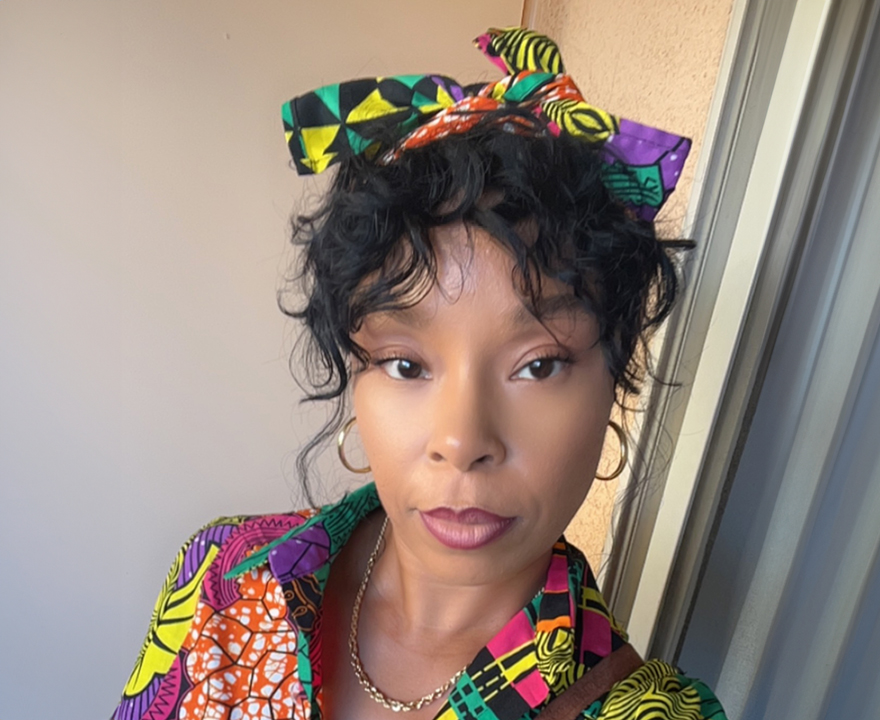Canty receives social sciences Alberti prize

Canty receives social sciences Alberti prize
- June 12, 2024
- Honor recognizes the poli sci grad student for outstanding promise as a future professor
Samantha Canty, political science graduate student, is a recipient of the 2024 Social Sciences Kathy Alberti Prize. The honor recognizes a graduate student who holds truly outstanding promise as a future professor or academic. Canty, who earned her bachelor’s in economics from Florida Gulf Coast University, pursues research on Black identity politics. Below, she expands on her work and time as an Anteater.
What made you decide to pursue your current field of study, and specifically at UCI? What interests you most about your work?
I had a career in finance for a while where I was challenged by a plethora of racialized, gendered, and isolating experiences that ultimately ushered me into this grad school space where I chose to study American politics, race and ethnicity. I wanted to develop a deeper understanding of the ways that marginalized folks navigate Anti-Blackness, specifically in the sociopolitical space. I returned to school because I wanted to live a more purpose driven life, I wanted the labor that I put forth into the world to hold meaning possibly beyond my lifetime, I wanted to become an instrument for social change. I chose UCI because UCI has some of the most highly qualified race and ethnicity scholars in the field. I was confident that professors like Davin Phoenix, Claire Kim, and Michael Tesler would offer the training, mentoring, and support that I needed to reach and exceed my goals.
What excites me (rather humbles me) the most about my work is the fact that I am devoting myself to something meaningful that makes me happy and that makes me feel good as a Black woman inside. That’s important to me.
Tell us about your research. What problem will your findings help solve?
I look at Black identity politics. I am building on the abolitionist work of so many other Black women scholars and community leaders who have paved the way for understanding Black women’s unique political behavior. Grounded in intersectional theory, my research identifies the ways in which Black women have been successful in leveraging their identity to tap into feelings of solidarity and connectivity among fellow Black women to encourage political participation. Moreover, I seek to further demonstrate that Black women's political solidarity is not a given, but it is actively produced by a set of political practices and traditions that are in direct response to Black women's experiences on the social, political, and economic margins.
Where can your work be found if someone wanted to learn more about your research?
- Academic Freedom Resource Guide (Black Girls Vote), April 2023
- Medical News Today, “Election 2020, Voting is ‘too Often a Privilege.’
What organizations, foundations, etc. have funded your research while you’ve been at UCI?
- Black Girls Vote
- Center for Liberation, Anti-Racism & Belonging
- Consortium for Power and Identity
Tell us about your campus accomplishments and activities.
- Center for Liberation, Anti-Racism & Belonging Fellowship 2024
- Black Girls Vote 2023 Student Researcher Fellowship 2023
- Thurgood Marshall Revolution and Research Grant 2023
- APSA 2020-2021 Spring Minority Diversity and Inclusion Fellow
Who have been your faculty mentors while here, and what impact have they had on your graduate career?
Davin Phoenix, Claire Kim, and Michael Tesler have all been extremely instrumental in this journey. Davin is my official advisor; however, they have all been incredibly supportive and hands-on in helping me to develop a rigorous research agenda that mirrors the kind of scholar practitioner that I aim to be. Throughout the years they have made themselves available and accessible in whatever capacity was necessary. I am so fortunate to have such a diverse pool of knowledge available to me, I honestly do not know where I would be without them.
What are your post-Ph.D. plans? How has UCI prepared you well for this role?
TBD. There are many possibilities beyond the ivory tower. I am not yet committed to anything; however, I will say that whatever career path I decide to take, working directly with marginalized communities will be a very large part of that.
Any unique life experiences that have guided your educational journey? Give us some background.
Being a first-gen, non-traditional student has largely shaped my experience thus far. I am literally building this plane as I am flying it, there are many days that I have to blindly feel my way through this unfamiliar academic life. I constantly negotiate what it means for me, as a Black woman, to be in this space and what the end result should look like.
-----
Would you like to get more involved with the social sciences? Email us at communications@socsci.uci.edu to connect.
Share on:


connect with us: